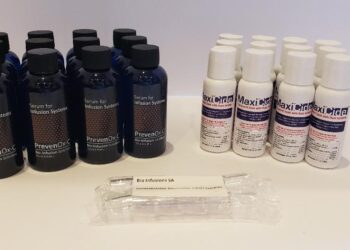An in-home alcohol detox is an option for people looking to overcome alcohol dependency. This process involves managing withdrawal symptoms under medical guidance, often with prescribed medications. It’s essential to know if this method can support long-term sobriety. Understanding its benefits, risks, and additional support options can help you make the right choice.
What Is In-Home Alcohol Detox?
This method allows you to detox from alcohol while staying in your environment. In-home alcohol detox involves gradually reducing alcohol intake with medical guidance to manage withdrawal symptoms. This option is often chosen for its privacy, but it works best for people with mild to moderate dependence rather than severe addiction.
Benefits of In-Home Alcohol Detox
This approach offers several advantages for individuals seeking comfort and privacy during detox. Detoxing at home can reduce stress since you remain in a familiar environment. It also offers greater privacy compared to inpatient treatment, making it a preferred option for those who value discretion. Another advantage is the potential for cost savings. Many find that home-based detox suits their lifestyle while still addressing their recovery needs.
Risks of Detoxing at Home
Understanding the risks helps you weigh your options carefully before deciding. While in-home alcohol detox may seem appealing, it has limitations. Without close medical supervision, withdrawal symptoms like seizures or dehydration can happen. The lack of a structured environment increases the chance of relapse. For individuals with severe alcohol dependence, these risks make supervised detox in a medical facility a safer option.
Can It Support Long-Term Sobriety?
Long-term sobriety requires more than detox; ongoing support is crucial. While in-home alcohol detox provides a starting point, achieving lasting sobriety often depends on additional steps. Therapy, counseling, and support groups can address the root causes of addiction and prevent relapse. Detox alone is not enough for most people; it must be part of a comprehensive recovery plan to maintain sobriety over time.
Alternatives to Consider
Structured detox programs can offer additional safety and support for severe cases. Medically supervised detox in a clinic or hospital provides constant care for managing severe withdrawal symptoms. Outpatient programs combine professional monitoring with the comfort of staying at home. These options ensure safety and offer resources like therapy, which can strengthen recovery. Exploring alternatives is important for those uncertain about home detox.
Conclusion
In-home alcohol detox can be a practical option for those with mild to moderate dependency, especially with medical support. However, it’s not suitable for everyone, particularly those with severe withdrawal risks. For long-term sobriety, combining detox with therapy and support groups is essential. Always consult a healthcare provider to choose the safest and most effective detox method for your needs.















